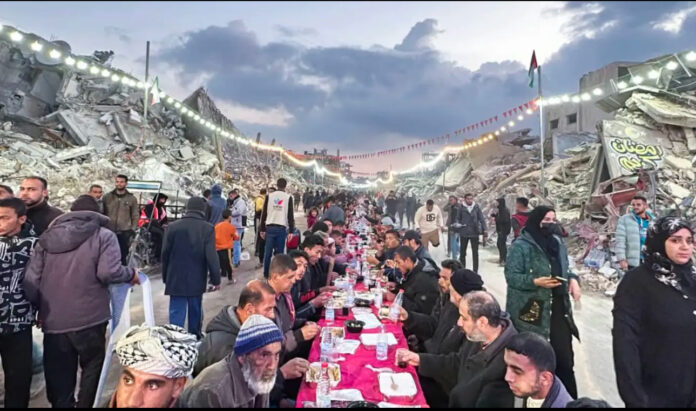
By Hauwau Shehu Maikeffi
The humanitarian situation in Gaza has deteriorated sharply following Israel’s decision to halt all humanitarian aid into the enclave on March 1, coinciding with the onset of Ramadan. This move aims to pressure Hamas into accepting a U.S.-proposed extension of the current ceasefire’s first phase, which Hamas has rejected, demanding a full Israeli withdrawal from Gaza.
The blockade has led to immediate price hikes for essential goods, exacerbating the already dire conditions for Gaza’s two million residents. Humanitarian organizations have condemned the blockade as “collective punishment,” a violation of international law, warning of severe health risks for the undernourished population.
Prior to the blockade, the ceasefire had allowed approximately 600 aid trucks to enter Gaza daily. The sudden halt has disrupted food and medical supply chains, intensifying fears of a looming famine.
The international community has reacted strongly against Israel’s actions. Arab nations and rights groups have labeled the blockade as a violation of the ceasefire agreement and international law, accusing Israel of using starvation as a weapon.
On social media platforms, hashtags like #GazaUnderSiege and #RamadanInGaza have gained traction, with users worldwide expressing solidarity with Palestinians. Images of empty markets and children breaking their fast with minimal food have sparked global outrage, amplifying calls for immediate international intervention.
As of today, the blockade remains in effect, with no resolution in sight. Negotiations between Israel and Hamas are at a standstill, and the humanitarian crisis in Gaza continues to worsen. The coming days are critical, as the international community seeks to mediate a solution to prevent further escalation and alleviate the suffering of Gaza’s residents during this holy month.










